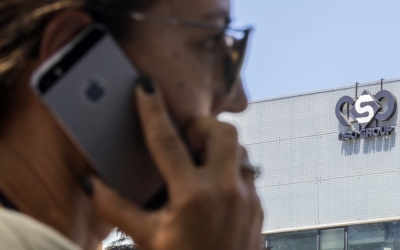Microsoft to investigate work of Israeli facial recognition technology it funded

Microsoft is investigating claims that facial recognition technology developed by an Israeli startup it funded violates its ethics code after it was allegedly used to surveil Palestinians in the occupied West Bank.
The Washington-based company said on Friday that it had hired Eric Holder, the former US attorney general, to take on the probe along with a team from law firm Covington & Burling.
New MEE newsletter: Jerusalem Dispatch
Sign up to get the latest insights and analysis on Israel-Palestine, alongside Turkey Unpacked and other MEE newsletters
AnyVision, an Israeli tech startup based outside Tel Aviv, has been accused by human rights groups of seeking to place Palestinians under surveillance using its sophisticated facial recognition technology.
AnyVision’s main software, Better Tomorrow, has been nicknamed “Occupation Google” due to the company’s claims that it can track Palestinians through Israel’s extensive network of surveillance cameras.
The company does not hide its connections with Israel’s security agencies. Its advisory board includes Tamir Pardo, former head of Israel’s Mossad spy agency, and its president, Amir Kain, previously served as head of the defence ministry’s security department.
AnyVision, however, denied to NBC News any such use of its technology to monitor Palestinians.
The company told NBC its software was not used for West Bank surveillance and was deployed at border crossings in a manner similar to US Customs' use of biometric identification at airports.
Despite this, AnyVision says that its technology has been used across more than 115,000 cameras, and that it has provided facial recognition technology at 27 checkpoints used by Palestinians to cross into Israel.
'Flips the premise of freedom on its head'
Shankar Narayan, of the American Civil Liberties Union, criticised the use of facial recognition in the occupied Palestinian territories, saying it “flips the premise of freedom on its head”.
“You start becoming a society where everyone is tracked, no matter what they do, all the time,” Narayan told NBC.
Microsoft said in its ethical principles declaration last year that it would “advocate for safeguards for people’s democratic freedoms in law enforcement surveillance scenarios and will not deploy facial recognition technology in scenarios that we believe will put these freedoms at risk”.
Microsoft said that AnyVision had agreed to comply with its six ethical principles.
Middle East Eye delivers independent and unrivalled coverage and analysis of the Middle East, North Africa and beyond. To learn more about republishing this content and the associated fees, please fill out this form. More about MEE can be found here.





